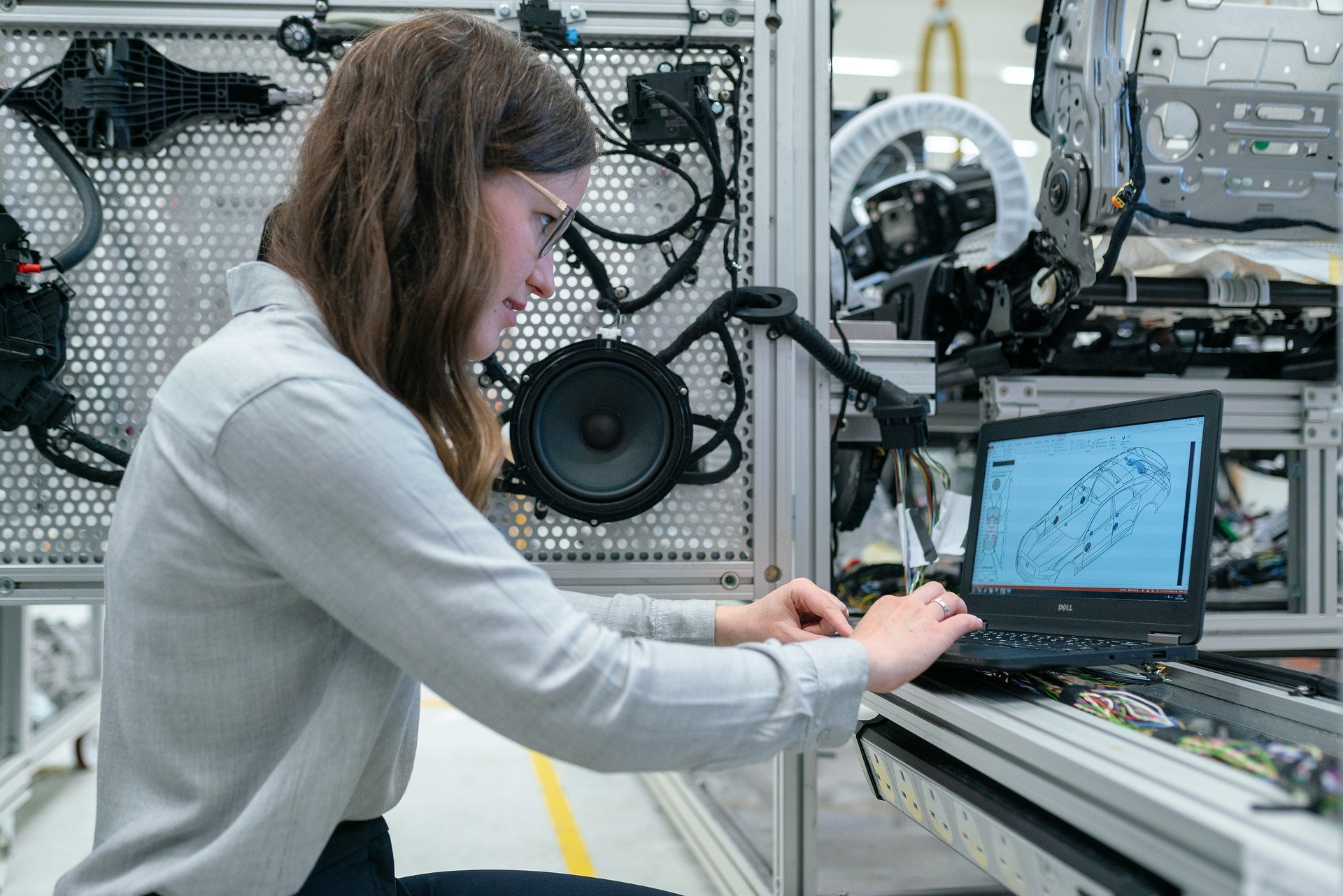Vocational training in the automotive industry – E-mobility places new demands on professional qualification
The automotive industry is undergoing an unprecedented transformation process: the emergence of electromobility in conjunction with advancing digitalization and the introduction of Industry 4.0 technologies are changing the sector significantly. As the industry changes, so do the demands on the professions that are deployed here. In the project “BeaT - Renewing Vocational Training for the Automotive Transformation”, funded by the German Federal Ministry for Economic Affairs and Energy, Fraunhofer IKTS and its partners are investigating which new qualification requirements the change in the automotive sector brings with it and how these requirements can be served in modern education and training programs. In collaboration with IKTS, the Institute of Sociology and the Service Center Research and Transfer of the Friedrich Schiller University Jena as well as the network automotive thüringen e.V. are partners.

“In the course of the settlement of the first German automotive battery factory in Thuringia, we want to specifically identify qualification needs of customers and suppliers with an empirical study,” explains project coordinator Dr. Stefanie Seitz from the department System Integration and Technology Transfer at Fraunhofer IKTS. “We match the results with existing offers in order to then develop recommendations as to which offers should be modernized, expanded or newly created.” In addition to the needs analysis on the part of the companies, the exchange with qualification providers and industry representatives, associations of employers and trade unions as well as political decision-makers is central to the project in order to publicize and discuss the findings for the automotive vocational training of the future.
As part of the project, a prototype professional training program for the field of e-mobility in Thuringia will also be developed and offered, using innovative teaching formats such as “blended learning” and an integrated training platform. “To test these programs, we will work closely with our practical partners from the industry, Hirschvogel Aluminium GmbH and Contemporary Amperex Technology Thuringia GmbH,” explains Seitz. The goal is to further develop and scale the training and continuing education programs in line with demand and to anchor them in the qualifications landscape in Thuringia and, in the long term, beyond the region and across the industry.